SaaS Scaled Podcast Book Recommendations
SaaS Scaled podcast host Arman Eshraghi, CEO and founder of Qrvey, asks guests for book recommendations. We’ve compiled a list of selected book recommendations.
-
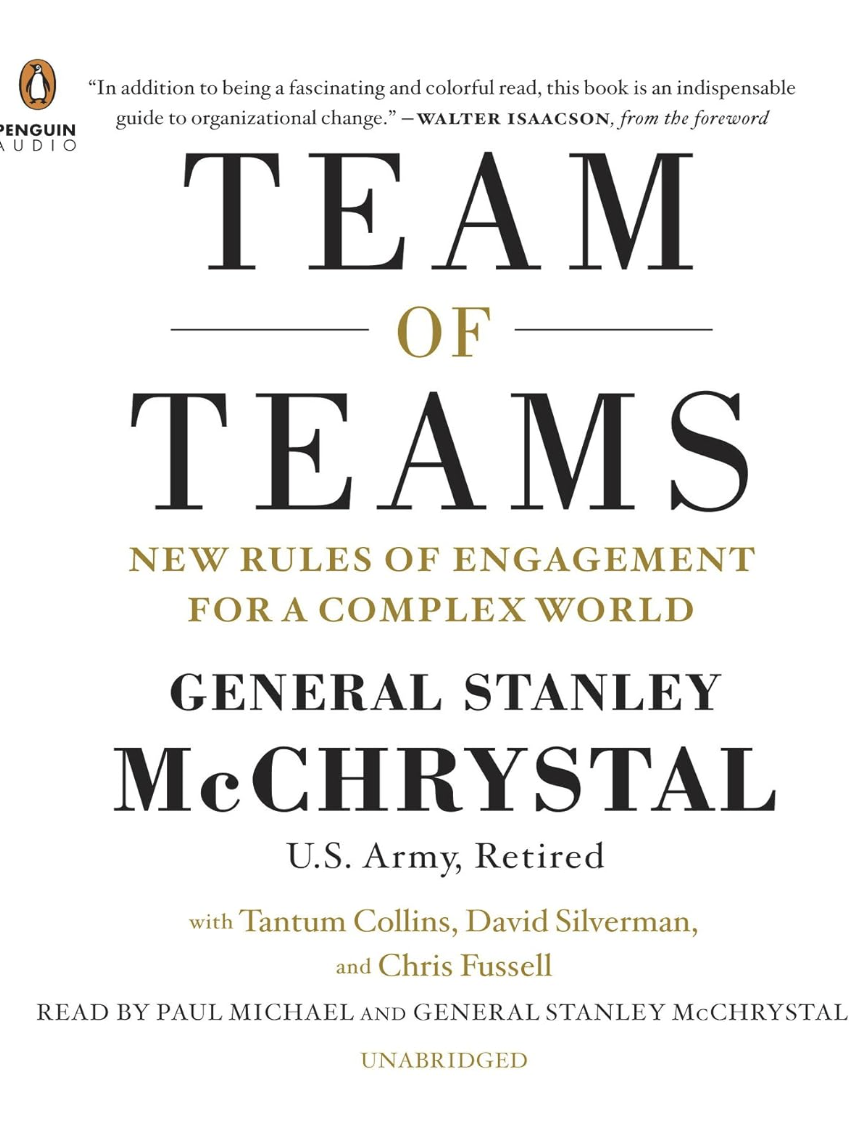
Doug Leeby recommended Team of Teams: New Rules of Engagement for a Complex World. Author General Stanley McChrystal was wildly effective at bringing together very competent, highly effective, competitive teams. Doug appreciated the book’s insights on perpetuating great culture, specifically driving unity and reducing silos and discord.
-
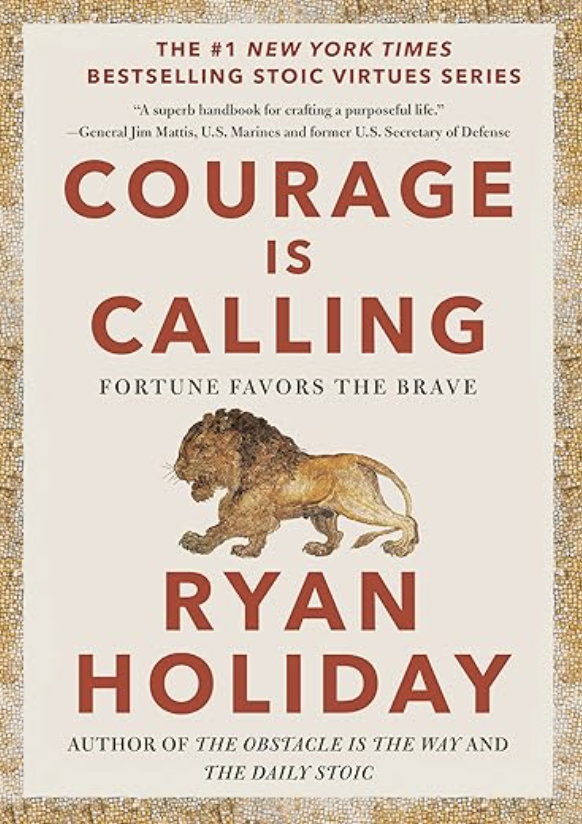
Adam Markowitz recommended Courage is Calling: Fortune Favors the Brave. Adam thinks something about stoicism probably resonates with startup founders more than most. Growth lives on the edge of discomfort, which is something they must pay attention to and acknowledge at a fast growing startup.
-

The Sales Acceleration Formula: Using Data, Technology, and Inbound Selling to Go from $0 to $100 Million. Danny Tomsett loves that it focuses on a more engineering approach to scaling sales and successful sales. Instead of only hiring salespeople who are already stars, scale effectively by creating the right systems, from recruitment to training and onboarding.
-

Chris McHenry recommended Obviously Awesome: How to Nail Product Positioning so Customers Get It, Buy It, Love It, which addresses the importance of understanding the way that you're positioning your product competitively, what problems you're trying to solve, and the value you're trying to deliver.
-

Mark Walker says the business book that has the biggest impact on him is Multipliers: How the Best Leaders Make Everyone Smarter. It's about the nature of empowering leadership. (Although it may sound a little “airy fairy,” he assures us it's not a woohoo book at all.)
-

Thomas Scott highly recommends The Friction Project: How Smart Leaders Make the Right Things Easier and the Wrong Things Harder. The job of leaders is to balance friction across the organization. Remove any friction that inhibits growth, innovation, or decision-making, while also ensuring some friction remains to prevent the organization from going through the wrong door.
-
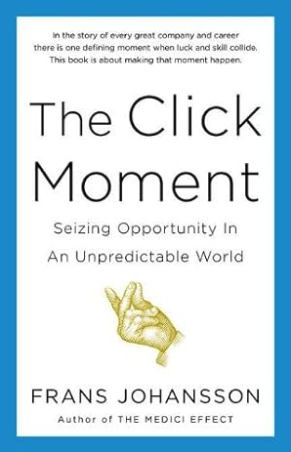
Mats Persson recommended The Click Moment: Seizing Opportunity in an Unpredictable World, which describes how there’s a portion of luck in the majority of success stories. Another classic mentioned by Mats was Drive: The Surprising Truth About What Motivates Us. It's key for leaders to create a framework for people to be motivated in.
-

Rich Dad Poor Dad was recommended for the second time by Marc Gonyea. He said it’s controversial in some ways, with a title that’s somewhat judgmental and jarring. Marc describes it as a classic that still resonates and might make readers look differently at how they invest money. The book partially inspired him to start Memory Blue.
-
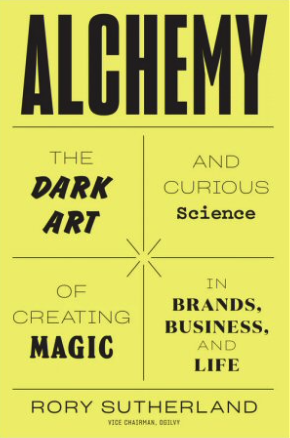
Chris Silvestri recommends Alchemy, which inspired the name of his agency. The book’s ideas include the importance of context and understanding as much as possible about your audience and how they think. Additionally, what people say is often not what they mean.
-
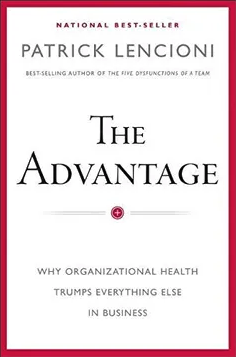
Erik Huddleston recommended two books that are particularly helpful for first time founders and scaling CEOs to keep cohesion in their leadership team: Extreme Ownership and The Advantage.
-

In 2023, Marne Martin wrote a foreword for Reinvent: Navigating Business Transformation in a Hyperdigital Era. She still loves the book today, and thinks it’s highly relevant for anyone who wants to lead.
-

Hikari Senju loves Accelerando, a sci-fi book about humanity in an optimistic future in which brains meld with machines and AI enables abundance.
-

Todd Olson recommend The Hard Thing About Hard Things, describing it as one of the few books that you reread many times. It’s filled with good nuggets that were true in the old SaaS era and remain true in the AI era. Todd also said Innovators Dilemma is one the best books ever written about tech.
-

Ted Elliott recommended Silicon Valley Way, which has an enduring set of rules and ideas about market opportunity and assessing whether what you're doing makes sense, including a set of rules to determine what not to do. Entrepreneurs can put the book in AI and then run their business plan through it.
-

Luis Garcia described Transversing the Traction Gap as "my Bible for everything that I do." It’s especially helpful to SaaS startups.
-

Playing to Win breaks down strategy into a practical set of five integrated questions that everyone in the company should ask and answer. Mohan Rao noted it's an old book but is a professional book he refers to often and has used for a long time.
-

PayPal Wars is an invaluable read for startup founders. Rahul Pangam said the book illustrates the challenges of building a company even with a talented team and offering an insider's perspective on the daily battles.
-

Rich Kahn’s all-time favorite book is How to Win Friends and Influence People. The biggest takeaway is that when you're having conversations with people, the more you talk, the less they like you. The more they talk, the more they like you.
-

Srikrishnan Ganesan’s said Leadership and Self-Deception increased his awareness of defensiveness and encouraged a more open approach to feedback and personal growth.
-

Zach Wasserman gave a personal recommendation, Braiding Sweetgrass, which offers a thoughtful reflection on modern consumption, environmentalism, and lessons from indigenous cultures.
-

Tom Lavery recommended Start With Why. This inspirational book is relatable in terms of how you present your company. Why are we here? How does it work? What do we do?
-

Baird Hall’s favorite business book is very different, Moneyball which is about the general manager of the Oakland A's who was trying to build a baseball team with very limited resources. He suggests it if you like the story of a startup being the underdog and the larger, VC-funded company being the villain.
-
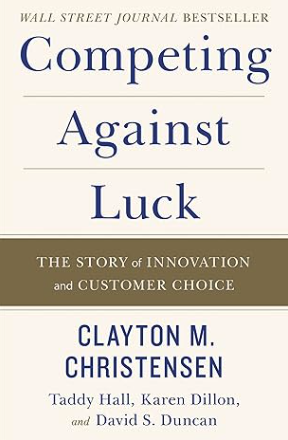
Cenk Sidar describes Competing Against Luck as one of his favorites about innovation, product, and thinking about the problem you solve. This book helps you understand the micro model of building a product.
-
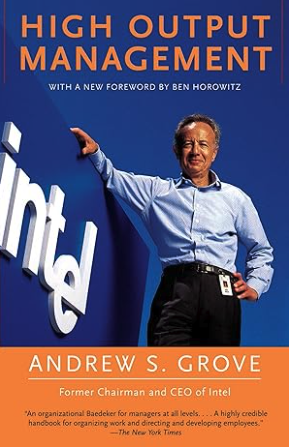
Joseph Ruscio likes the classics, including perennial favorite High Output Management. Joseph also recommended Four Steps to the Epiphany, which emphasizes the need to get out of the building and talk hard tto customers, and provides a systemized way to record the feedback.
-

Matt Clark suggested for earlier stage companies, Traction: Get a Grip on Your Business is a great business operating system to align your management team around. As Corcentric has grown, they’ve found Scaling Up: How a Few Companies Make It...and Why the Rest Don't to be a really great fit in their lifecycle.
-

Especially if you're a founder or a CEO, Matt Verlaque recommends The Great CEO Within, written by an executive coach who also open-sourced all the curriculum. He also mentioned The Goal, which is a fun graphic novel that helps you figure out systems theory and the theory of constraints.
-
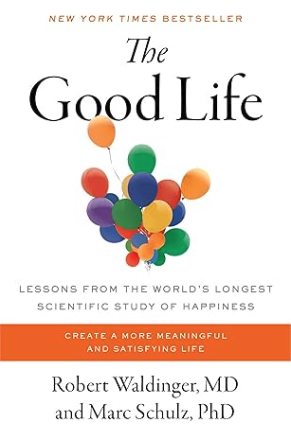
Mike Palmer recommended The Good Life, which summarizes a research project that started at Harvard 100 years ago, investigating what makes people happy.
-
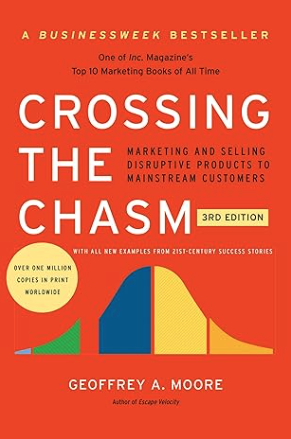
Pieter De Villiers often cites Crossing the Chasm and its simple idea of the bowling alley strategy, which suggests dominating a particular product for a specific segment before moving on. He also recommended The Five Dysfunctions of a Team.
-

Praveen Narra strongly recommends The ONE Thing. He suggests reading this book and focusing on your "one thing" instead of trying to dabble in too many different things.
-
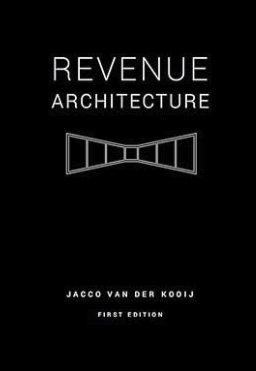
Roee Hartuv mentioned Revenue Architecture, which explains all the frameworks and models related to revenue architecture and was written by their founder.
-

Shawn Olds recommended Hooked: How to Build Habit-Forming Products, which is all about the science and the psychology behind people adopting and sticking with platforms. Another of his favorites is Never Split the Difference, appearing on our list for the second time.
-

Vineet Jain first recommended The Score Will Take Care of Itself, describing it as a must-read that had a very profound impact on him. A second, more recent book was written by one of his investors and board members, Pattern Breakers, the secrets behind the worlds’ most successful start-ups.
-

Vipul Shah recommended The Hard Thing About Hard Things, appearing on our list for the second time. He called it one of his favorite books for startup founders, highlighting the tough decisions they need to make. Vipul also recommended Never Split the Difference. The CEO job is very hard. It's lonely at the top and you have to make hard decisions.
-

Alex Levin described How to Talk So Children Will Listen, and Listen So Children Will Talk as a "fabulous analysis of children in general." It serves as a reminder to have intentionality in interacting with people and being mindful of how words can be encouraging or discouraging.
-
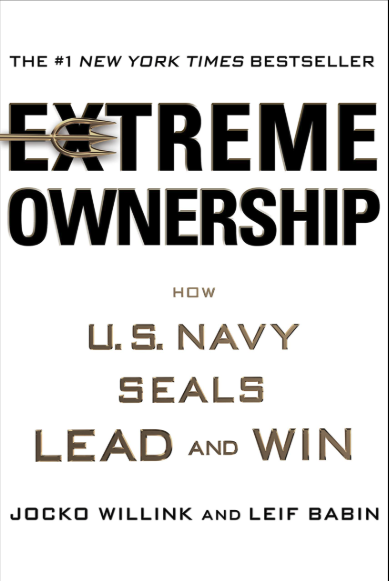
Ben Johnson recommended Extreme Ownership as “a must” which covers principles on exuding confidence under pressure. Ben also recommended Atomic Habits for its core idea that modifying your habits and improving by 1% every day can result in a full turnaround in a year.
-

Dan Balcauski recommended Getting Price Right. He found it fascinating because it shows that there's art and a science to pricing, highlighting how companies can influence how consumers view value by setting proper frames.
-

Dev Rishi recommended The Happiness Advantage, which discusses how personal happiness correlates with professional success and argues for investing in employee happiness for higher performance.
-
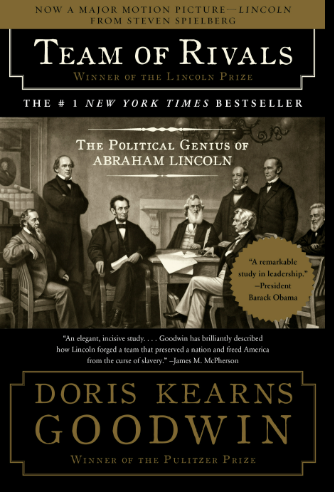
Gregg Johnson recommended Team of Rivals, which is about Abraham Lincoln's cabinet and is recommended for its insights into the human elements of creating a team and scaling a business. Gregg also recommended Scaling People, focusing on the people and operational aspects of company building.
-

Jan Arendtsz recommended Good to Great, which focuses on deliberately planning to make something great and being obsessive about it.
-
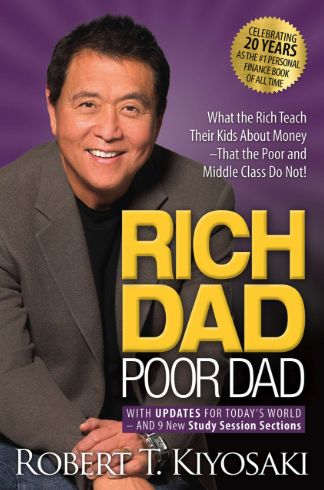
Jason Kruger recommended the Rich Dad Poor Dad series was important early in his career for understanding how sophisticated individuals build businesses beyond themselves and the importance of leveraging partners. Jason said Traction helps provide a structure or platform on how to run a business and create consistency, helping owners work on, not in, their business.
-

Lee Blakemore recommended Necessary But Not Sufficient, which is about constraints and understanding issues at a deeper level, and not just the surface.
-

Michael Katz recommended Team of Teams. He recommends it frequently because it aligns with themes like the importance of systematizing operations, facilitating high-quality information transfer, and creating high-quality interactions between people and teams.oes here
-
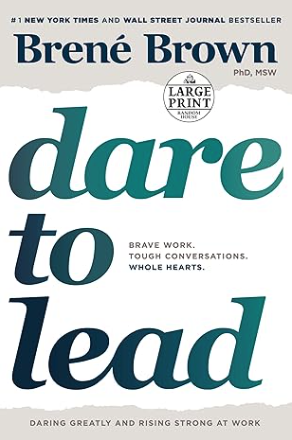
Michael Keeler recommended any book by Brené Brown, specifically Dare to Lead. Her work discusses the importance of authenticity and vulnerability in relationships (colleagues, clients, partners). Trust is built through empathetic listening and sharing, and Brené’s advice is helpful for empowering people as a leader.
-

Peter Voss recommended The Mind's I, which is a book about how the mind works, containing fascinating stories that make you think.
-
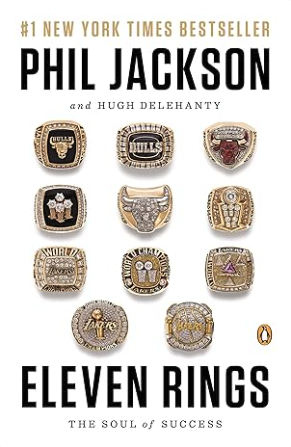
Phil Ahad recommended Eleven Rings as a great leadership book, even though not traditionally a business book. He read it to learn how to manage different personalities, drawing from Jackson's experience with star players, and highly recommends it for managing teams of any size.
-
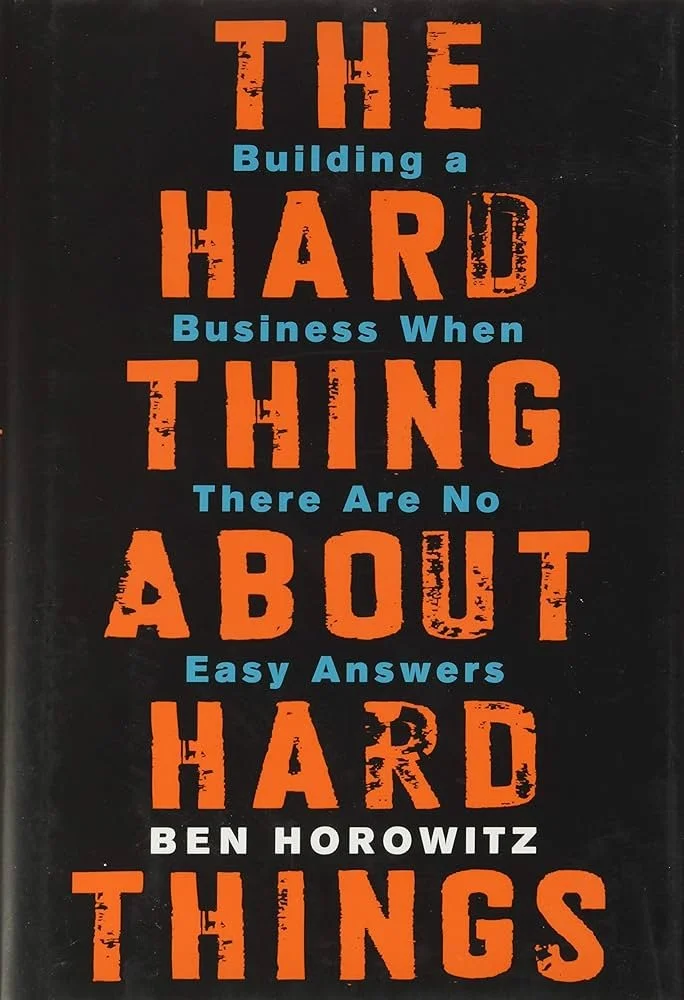
Swathi Young recommended The Hard Thing About Hard Things. She finds it highly relevant as it covers the end-to-end lifecycle of a startup, from starting and managing to dealing with growth, selling, and merging. She highlights its honesty about the psychological aspects and hard decisions leaders face.
-

Sid Banerjee recommended Competing in the Age of AI. Written a few years ago, he felt it reinforced his passion for AI. As half Harvard business school case study and half technology primer, the book offers interesting ideas on how companies are transformed by AI investments.
-

Ben Sebree recommended The Power of Little Ideas. The book is about taking a mature product line and creating value by innovating around it as an ecosystem. It provides examples of how companies innovate around their core competency to create new value without cannibalizing their market, which he finds valuable for established players.
